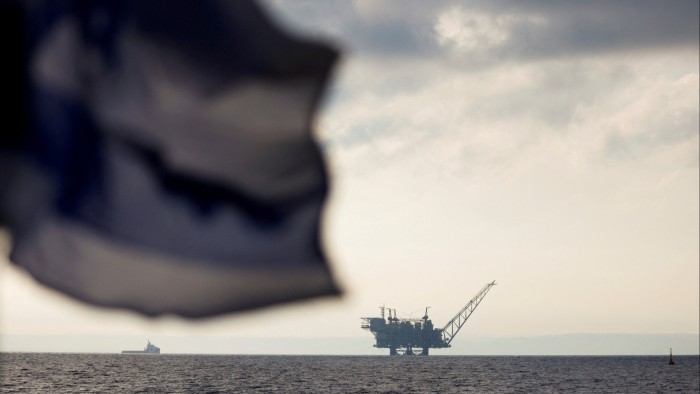Unlock the Editor’s Digest for free
Roula Khalaf, Editor of the FT, selects her favourite stories in this weekly newsletter.
Israeli energy company NewMed has signed a $35bn deal that will eventually almost triple the flow of natural gas from the country’s vast Leviathan field to Egypt.
Leviathan, which is owned by NewMed, Chevron and Ratio Oil, is one of Egypt’s most important sources of natural gas, supplying about 4.5bn cubic metres (bcm) a year.
The deal deepens Egypt’s reliance on Israeli gas at a time when many Egyptians are angry at Israel’s offensive and disappointed that Cairo has not done more to alleviate the suffering of starving Gazans. Egypt is trying to mediate a ceasefire in the conflict and Abdel Fattah al-Sisi, the Egyptian president, recently described the Israeli offensive in the strip as a genocide.
Under the terms of the new agreement, the flow of natural gas would increase to roughly 12 bcm from 2029, said Yossi Abu, NewMed’s chief executive. “This is a win-win deal,” he said, adding that Egypt would save a “tremendous amount of money” compared with having to import liquefied natural gas.
NewMed said it would sell 130 bcm of natural gas to Egypt over the next 15 years, a total equivalent to roughly two years of the country’s total gas consumption.
To boost production from Leviathan, NewMed and its partners will add a third supply line from the gasfield to its offshore platform this year, and then spend $2.5bn to drill two new wells and install the necessary systems by 2029.
“We will increase the flow from 4.5 bcm a year to 6.5 bcm later this year, or early next year,” said Abu. “Then once we have doubled Leviathan’s capacity, we will increase from 6.5 bcm to roughly 12 bcm a year.”
A new onshore pipeline from Israel to the Egyptian border at Nitzana will also be built.
Abu said negotiations had been ongoing for the past two years and declined to comment on whether they had been affected by the war in Gaza. “We are very focused on the commercial win-win — we are not political or geopolitical entities,” he said.
“Relations between Cairo and Tel Aviv have been at their lowest point in years over Israel’s war on Gaza, which has angered Egyptian society in every sector and at every level,” said Dr HA Hellyer, senior associate fellow in Middle East studies and security at the Royal United Services Institute. “Many Egyptians will fear that Israel’s impact on Egyptian energy may mean it will try to use it to pressure Cairo.”
Leviathan is one of the largest gasfields in the Mediterranean and contains about 600 bcm, with production expected to last until 2064.
Once a major exporter of gas from its own fields, Egypt has become increasingly reliant on imported LNG as its production declined. In the summer of 2024, as temperatures soared, daily rolling blackouts riled public opinion and reduced economic activity.
Since then the government has stepped up imports and has been repaying arrears to international energy companies to persuade them to resume exploration and production.

